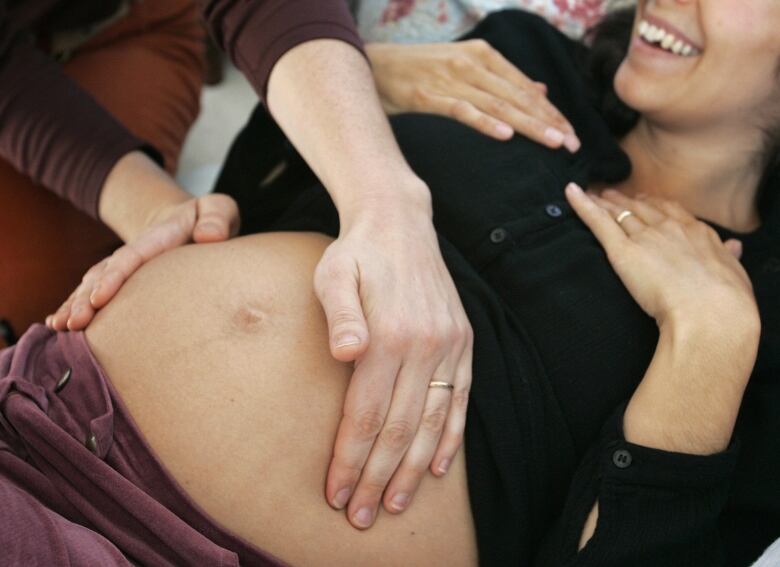Pay ruling validates profession's role, Ottawa midwife says
Province discriminated against female-dominated occupation, rights tribunal finds

An Ottawa midwife is welcoming this week's Human Rights Tribunal of Ontario decision on pay equity as "validating"for her profession, but it could still be some time before midwives see the kind of salary increase they're looking for.
On Monday, the tribunal ruled in an interim decision that the Ministry of Health and Long-Term Care has discriminated against midwives since 2005. In the landmark decision, vice-chair Leslie Reaume found that for more than a decade,the ministry has failed to follow principles established 25 years ago when it comes to compensation.
"It's significant for myself as a midwife, for all midwives in Ontario,"Liz Fraser, an Ottawa midwife who sits on the board of the Association of Ontario Midwives (AOM)told CBCRadio's Ottawa Morning.
"[The decision] reinforces that our work is valuable, that we deserve to have our compensation evaluated and to be compensated appropriately, just like any other health professional."
Compensation to be determined
The AOMfiled the complaintagainst the ministry in November 2013. Currently, midwives are paid the equivalent of a salary ofbetween $69,000 and $105,000, but the association is calling for a near-doubling of that amount, with top earners receiving around $200,000 per year.
Midwives don't receive a salary, Fraser said, and instead earn a set amount for each client they follow throughpregnancy, labour andpost-partumcare.
Reaumedeferreda decision on compensation to allow the ministry andAOMtime to mend their relationship and return to the table to close the gap. If the ministry refuses, the assocation can returnto the tribunal for a ruling on compensation.
It's difficult to do your work when you find yourself in the position of having to constantly explain why your work is valuable.- Liz Fraser, Ottawa midwife
A key sticking point has been what the AOMsees as gender discrimination, Fraser said.
"When we think about midwifery work, we're thinking about what would have historically been called women'swork, work that would have been done by women, usually for free throughout most of history as part of our social role," she said.
"Our argument wasthat the gender stereotypes that surround women affected the way that that work that we do was valued for that reason."

Fraser rejects the notion that midwives shouldn't be paid at a similar rate to other primary care providers, including doctors. Midwives have years of education, perform gruelling work and are on call 24/7, she said.
"It's difficult to do your work when you find yourself in the position of having to constantly explain why your work is valuable. It's demoralizing and it's difficult."
- With files from CBCRadio's Ottawa Morning












_(720p).jpg)


 OFFICIAL HD MUSIC VIDEO.jpg)
.jpg)



























































































